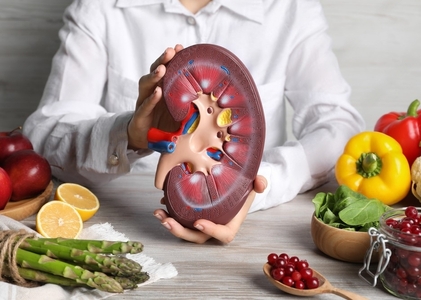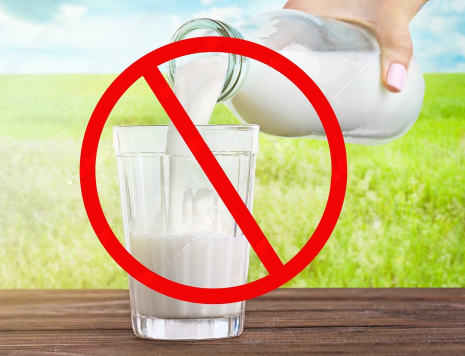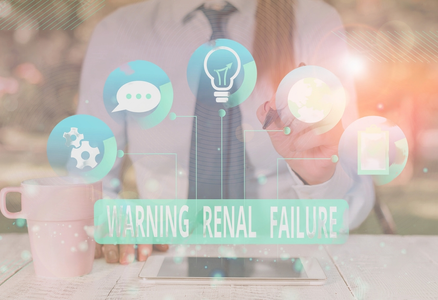
- 693
- 0
Dietary Do’s and Don’ts: Crafting Your Defense Against AKI
The intricate relationship between diet and AKI plays a pivotal role in the treatment and recovery process. A well-structured diet plan can not only alleviate the strain on the kidneys but also contribute significantly to the healing journey.

In this blog, we understand the role of caloric intake and personalized meal planning in the recovery process, emphasizing the importance of managing Acute Kidney Injury.
How does Diet play an important role in the treatment of Acute Kidney Injury?
A planned diet can help manage kidney function, decrease the work pressure on the kidneys, and prevent complications.
Here are some dietary tips for patients recovering from Acute Kidney Injury:
- Fluid intake: Restricting fluid intake is important to manage fluid overload and help the kidneys maintain a proper fluid balance. A consulting nephrologist may prescribe specific fluid intake goals based on the patient’s needs and the seriousness of AKI.
- Sodium restriction: Restricting sodium consumption can help manage blood pressure and fluid retention, which can reduce the workload on the kidneys. This often involves avoiding preserved foods and restaurant foods, as they are high in sodium.
- Potassium control: Calculating potassium intake is important, especially if the kidneys are not functioning normally. Depending on the patient’s specific needs, one may need to restrict or avoid foods rich in potassium, such as bananas, oranges, tomatoes, and potatoes.
- Protein intake: Depending on the severity of AKI, a nephrologist may advise adjusting protein intake. While protein is important for overall health, excess protein intake can increase the kidneys’ functionality. The aim is to maintain the need for protein with the need to reduce the strain on the kidneys.

- Phosphorus restriction: Some individuals with AKI may need to limit phosphorus intake, as impaired kidney function can lead to an accumulation of phosphorus in the blood. This often involves avoiding foods high in phosphorus, such as dairy products, nuts, and certain beverages.
- Caloric intake: Maintaining a healthy caloric intake is important to prevent malnutrition and support overall health. It’s important to take the required calories to meet the body’s energy requirement while considering any specific dietary restrictions.
- Individualized meal planning: Working with a registered clinical dietitian can help develop an individualized diet plan that meets the individual’s nutritional needs while taking into account their specific dietary restrictions and preferences. You can also enrich yourself regarding the renal friendly cooking by joining our Renal cooking group:
A balanced and individualized diet, along with medical treatment and monitoring, aids in healing and prevents AKI complications. It is essential to follow the guidance of healthcare providers and dietitians to ensure the most effective dietary management of AKI.
Can AKI lead to permanent kidney damage?
Yes, Acute Kidney Injury can potentially lead to kidney damage if not promptly addressed and managed effectively. AKI is characterized by a sudden decrease in kidney function, resulting in the inability of the kidneys to filter waste products from the blood and maintain fluid and electrolyte balance. If the underlying cause of AKI is not treated and the condition is not managed appropriately.
It can lead to:

- Chronic kidney disease (CKD): Prolonged or severe cases of AKI can contribute to the development of chronic kidney disease. It is characterized by a gradual loss of kidney function over time. This can eventually progress to end-stage renal disease. In this stage, the kidneys are no longer able to function adequately to sustain life without renal replacement therapy, such as dialysis or kidney transplantation.
- Increased susceptibility to future kidney injury: Individuals who have experienced AKI face an elevated risk of recurrent episodes. This risk is particularly pronounced in those with pre-existing factors like diabetes, hypertension, or advanced age. The presence of these conditions increases the likelihood of AKI recurrence.
- Complications in other organ systems: Severe AKI can result in complications affecting various organ systems. These include the cardiovascular system, respiratory system, and central nervous system. These complications can, in turn, contribute significantly to overall morbidity and mortality.
- Electrolyte imbalances: AKI can disrupt the balance of electrolytes in the body. This disruption can lead to complications like hyperkalemia, which involves elevated potassium levels. If not promptly addressed, hyperkalemia can have potentially life-threatening consequences.
Early identification, prompt treatment, and appropriate management of AKI are crucial in preventing further kidney damage and associated complications. Regular follow-ups with healthcare providers and adherence to any prescribed treatment plan can help minimize the risk of long-term kidney damage and improve overall outcomes.
Can Chronic kidney problems occur after an AKI?
The likelihood of developing chronic kidney problems after recovering from Acute Kidney Injury can vary depending on several factors. Including the severity of the AKI episode, the presence of any pre-existing kidney conditions, and the overall health status of the individual.
Some factors that can influence the risk of chronic kidney problems after recovering from Acute Kidney Injury include:

- Pre-existing conditions: Individuals with pre-existing conditions like diabetes, hypertension, or CKD are at a higher risk.
- Severity of AKI: Severe cases of AKI, particularly those requiring dialysis or intensive medical interventions, can increase the risk of long-term kidney damage and the development of CKD.
- Older age: People of advanced age have a higher risk of developing CKD after an episode of AKI.
- Prolonged recovery: Individuals with a prolonged recovery after AKI may be at a higher risk of developing chronic kidney problems. This risk is compared to those who experience a swift and complete recovery.
- Recurrent episodes of AKI: Individuals who experience recurrent AKI, specially due to factors such as dehydration, sepsis, or medication-related kidney injury.
In essence, a holistic approach to AKI management, encompassing both medical intervention and dietary considerations, plays a crucial role in not only addressing the immediate challenges but also in safeguarding long-term kidney health and overall well-being.
To know more about AKI you can read our pre existing blog by clicking below:
Comment
Check Your EGFR
***We Promise, no spam!







